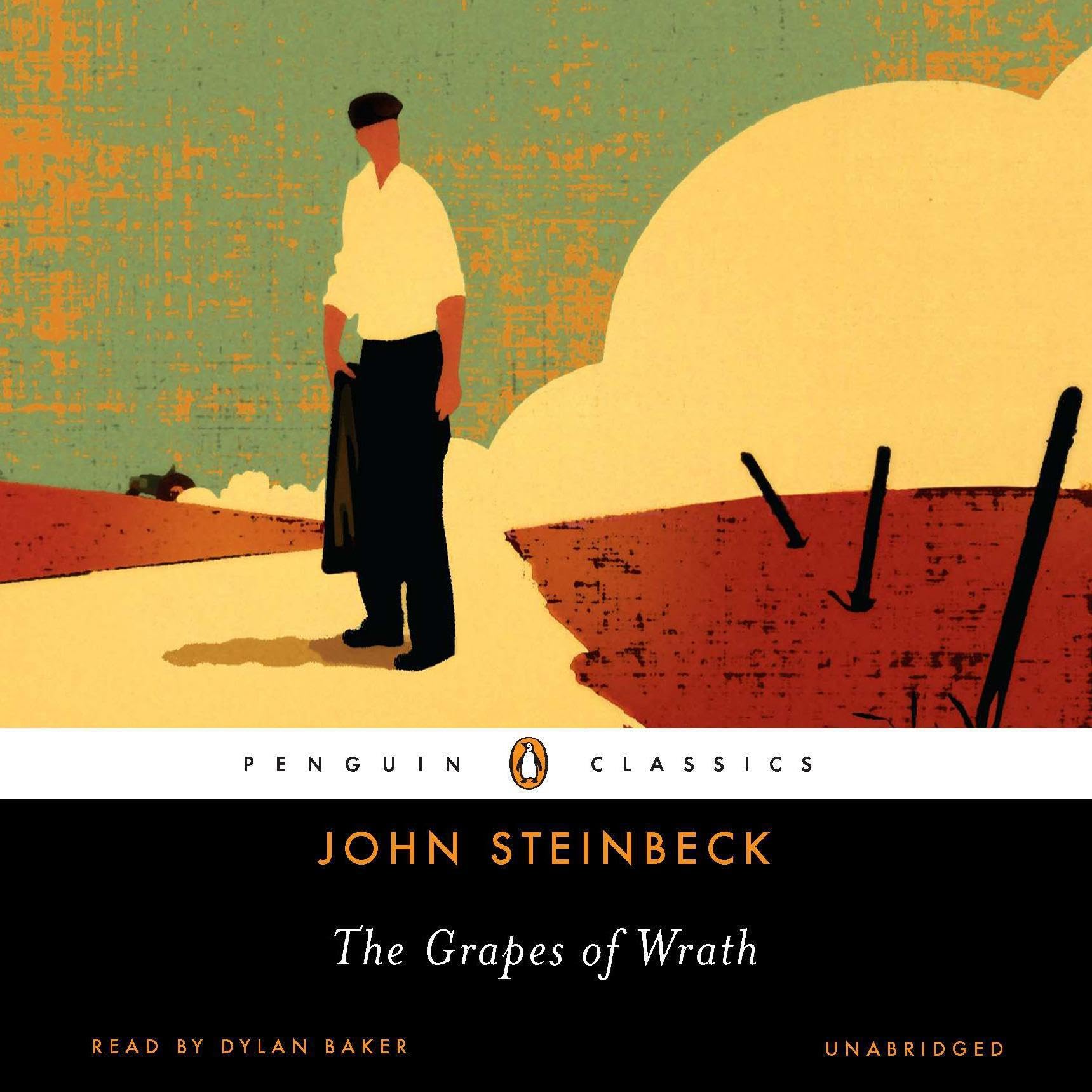Customer Services
Copyright © 2025 Desertcart Holdings Limited


Full description not available
B**S
America's Odyssey. Fantastic.
Grapes of Wrath is historical work of fiction. Covering the migration of tens of thousands of tenant farmers from the mid-west to the West of America. The book is half-fiction and half historical narrative.Amazing and absorbing are two words that initially come to mind when recalling the story. We follow the Joads, a family of tenant farmers, from Oklahoma to California. The mid west has become a dust bowl and the crops are performing badly. The land owners are heavily indebted to the banks who call in their loans. The land owners have to bow as industrialization thunders down on them and tractors and massive earth moving machines plow and turn the land. The tenant farmers are evicted and slowly but surely, reality sets in. They have nothing but each other. All the work is out west they hear. Our story starts as they point the old jalopy west and set off for better days.Steinbeck writes the story from 3rd person perspective and writes using the vernacular one would hear if one were a fly on the wall. Only becomes On'y, something becomes sumptin, every becomes ever', family becomes fambly. After reading for a while, the voice in your head takes on a Southern drawl as you read over the exchanges of the family. Conversation is scant yet, succinct. Articulation is nonexistent but the emotion leaps from the page. It truly is amazing the amount of feeling Steinbeck manages to get across to the reader. You truly are in the wagon, tents, camps, fields with the Joads as their personal Odyssey develops.There are 30 chapters and every other one is a historical perspective that Steinbeck uses to color in the hurdles and forces working against the migrants who were headed West. These folks were treated with contempt, condescension, abuse, left to starve and physically abused by law-enforcement yet, they continued on their way with hope. The hope was eroding from within yet, onwards they went. Tight family units looking out for each other and helping others along the way.The characters all add their "something" to the story. One of the more interesting ones, for me, was the character Casey. Casey, an ex-preacher, is somewhat like the phone in the old movies. Someone would grab the phone and use it to fill in some parts of the movie. Casey has that role in some places. He's a thinker and we find him thinking and explaining things to the Joads as they come to terms with their predicament.This work is a classic, no two ways about it. It's an American Odyssey during the great depression. Down home, heart of the Nation people uprooted by progress and forced to adapt to a world that didn't want them. Excellent work.6 stars.
A**4
Heavy with the Vintage: Resilience in Steinbeck’s Grapes of Wrath
John Steinbeck’s The Grapes of Wrath is a towering tale of human endurance, etched in prose that sings with both grit and grace. The story sweeps across a battered America, where families chase fragile dreams against a backdrop of dust and despair. Its scope is undeniably epic, painting a vast canvas of struggle that feels as boundless as the highways it follows. Steinbeck’s characters—raw, flawed, and fiercely real—anchor this grandeur, their hearts laid bare in moments of quiet resolve and unspoken pain. As one voice in the novel declares, “How can you frighten a man whose hunger is not only in his own cramped stomach, but in the wretched bellies of his children? You can’t scare him—he has known a fear beyond every other.” This fierce spirit drives the narrative, making every step a testament to human will.Steinbeck’s writing is a marvel—simple yet profound, with descriptions so vivid you can taste the dust and feel the weight of a family’s burdens. His alternating structure, weaving intimate family drama with broader societal insights, is masterful, offering a lens into the systemic injustices that haunt the story. “There is a crime here that goes beyond denunciation,” Steinbeck writes, capturing the sorrow of a world where “children dying of pellagra must die because a profit cannot be taken from an orange.” This unflinching look at social wrongs, paired with the emotional depth of family ties, creates a story that’s both personal and universal, resonating with readers who crave deep characters and grand stakes.Yet the novel’s relentless sadness can weigh heavily. The opening hundred pages unfold slowly, demanding patience as the journey takes shape. For some, the lack of clear redemption—hoped-for moments of stability or renewal that never fully arrive—may leave the heart aching. The story’s sorrows, while purposeful, rarely lift, and certain character arcs, like those seeking faith or security, remain unresolved, which might frustrate readers yearning for brighter closure. Still, Steinbeck ensures the hardship carries meaning, culminating in an ending that channels inspiration through shared humanity. As he writes, “In the souls of the people the grapes of wrath are filling and growing heavy, growing heavy for the vintage,” a line that evokes the simmering strength born from collective struggle.Overall, The Grapes of Wrath leaves you moved, if not uplifted, its emotional weight lingering like dust on the tongue. It’s a story that doesn’t shy from life’s harsh edges but finds beauty in resilience and connection. For those drawn to epic narratives and characters who feel like kin, this novel is a powerful, if somber, triumph.
Trustpilot
2 weeks ago
1 day ago